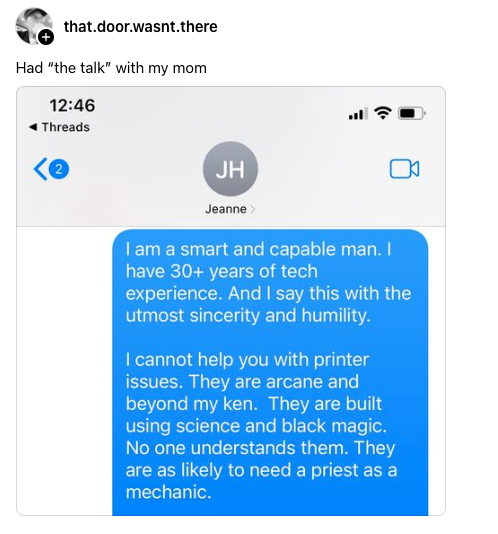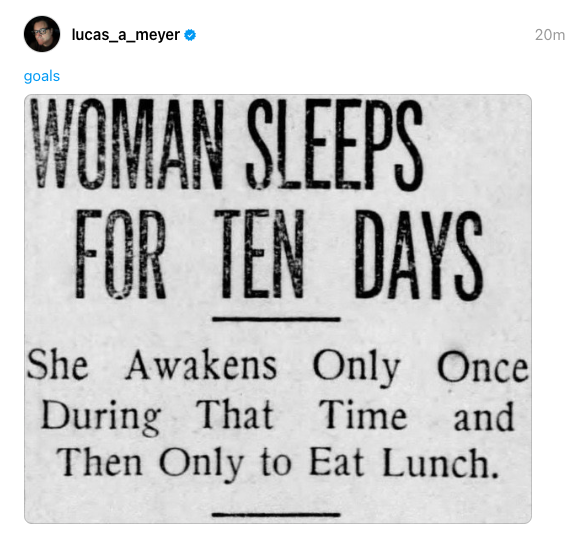Here’s something I saw on a 2017 business trip to San Francisco: The retro-futuristic lobby of the Hyatt Regency San Francisco.
The hotel was a primary location for two movies I loved: Mel Brooks’s “High Anxiety” and “Time After Time,” where Malcolm McDowell plays a time-traveling H.G. Wells.

I have no doubt that Adam Mosseri and his team are talented, hard-working and sincere about making Threads a great citizen of the fediverse. And I have little doubt that they will change those intentions or be replaced when Threads hits the final stages of the “embrace, extend, extinguish” cycle.
An ongoing coffee near-disaster
🦆Today’s memes: da fuck they doin ova der
Filipino police freed hundreds of slaves toiling in a romance scam operation [theregister.com] — One worker, who tipped off police, was “promised a job as a chef. Police said he bore signs of torture in the form of electrocution marks.”
Thomas Friedman: What Schumer and Biden Got Right About Netanyahu [nytimes.com] — Israel needs a plan for peaceful coexistence with Palestinians after the war, and Netanyahu has nothing to offer.
A conversation with Stephanie ‘Snow’ Carruthers, Chief People Hacker at IBM X-Force Red [securityweek.com]
Her partner planned to attend DEFCON. She went with him, more for Vegas than DEFCON. But after falling asleep in a reverse engineering malware presentation (“It went completely over my head,” she explained) she was encouraged to go and find something of more interest. She did, and found a lock-picking village. Within a couple of hours, she had picked her first lock.
17 percent of Americans report experiencing long Covid. That is an extraordinarily high number of sick people. [usnews.com]
“How Are You? Just Give Me Your Stock Answer. No, really. I want to know your stock answer." [ironicsans.beehiiv.com] — Me: “I’m good. You?” Or, if the other person asks first, I just say, “I’m good.” Except often I forget and say, “I’m good, you?” leading to an infinite “How are you” loop.
My editor won’t sent me to to KubeCon in Paris, France. She says if KubeCon comes to Paris, Texas, she’ll talk about it.
My latest on Silverlinings: Red Hat jockeys for pole position as enterprises cloudify critical apps — Enterprises are releasing critical applications from their safe, legacy architectures and updating them for the cloud, according to a report by Red Hat and analysts at Illuminas.
I have zero coding skills, but I coaxed ChatGPT to write a JavaScript blogging tool
My goal was simple but it eluded me for ten years.
Here’s something I saw while walking the dog.
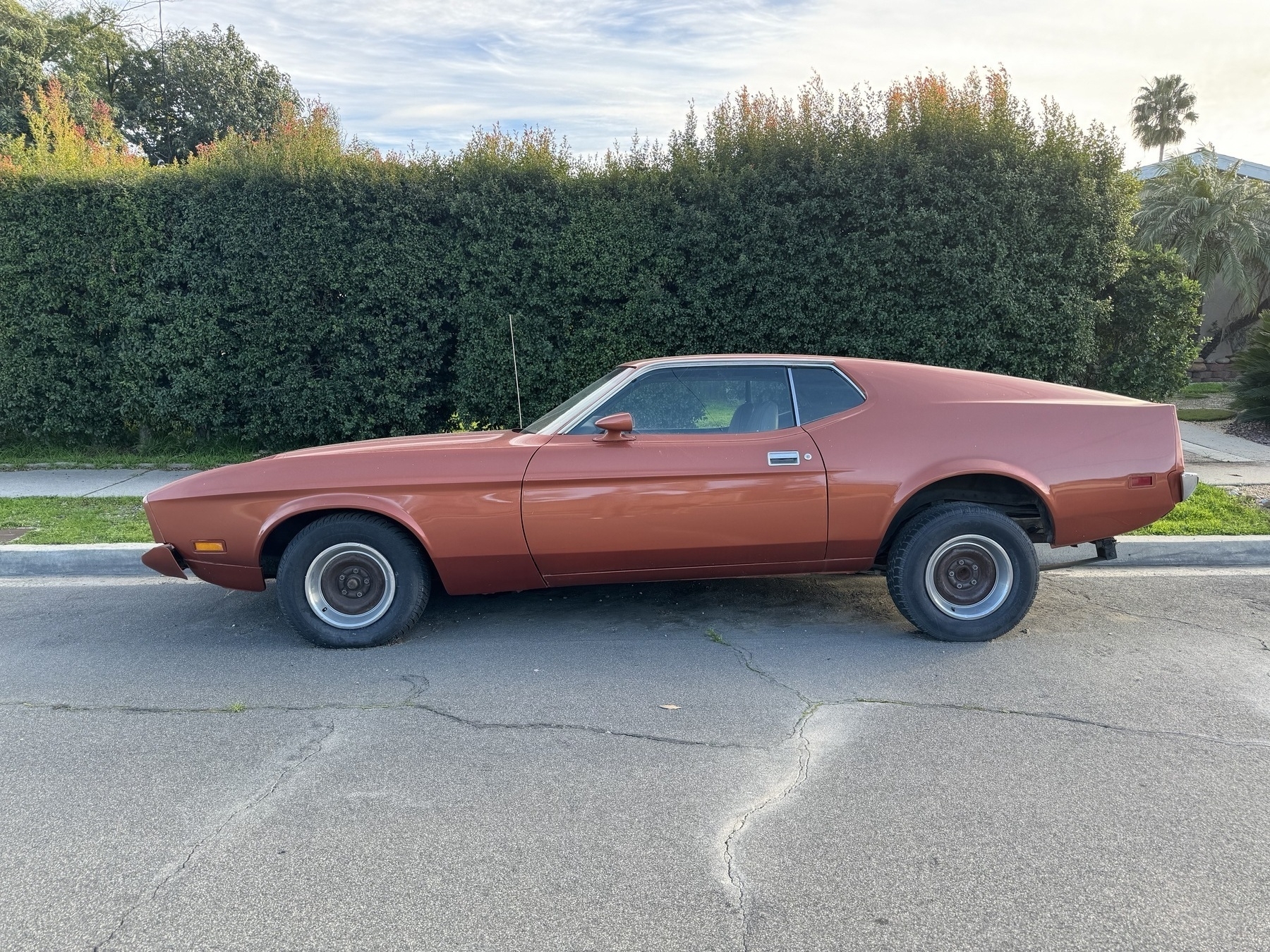
“Our cousin lives in Jupiter, Florida so you can imagine my 8yo’s disappointment once we arrived.”— @ihidefrommykids
A Magic 8 Ball would be a superior weather predictor to my iPhone weather apps
It’s sunny and clear and I just got a weather alert to expect severe thunderstorms in 40 minutes. WTF?
The air does smell ozoney, though.
Praise for the Vivaldi browser
I’m trying to be more mindful about adding articles to my read-it-later list. It becomes just another to-do list to add stress to my brain. I want to stop adding “that might be interesting” articles to the list. But that’s hard to do because those articles, well, might be interesting.
My latest on Silverlinings: Oracle climbs to the hyperscaler A-list — Oracle’s growth and multi-cloud strategy elevates it to the big leagues. Its deeper partnership with Microsoft will burnish the Crimson Cloud Conglomerate’s shine.
Read to the end for a failed comparison to “Goodfellas.”
I tried steel-cut oats for my morning oatmeal and the texture was like tiny styrofoam pellets. Not recommended.
It's nice to be recognized
I am delighted to be included in the new blogroll for Dave Winer’s Scripting News —consistently one of my favorite blogs for more than 20 years.
Something I thought about while naked
Something I saw while walking the dog.
This would have been a fantastic photo if not for that frickin green blurry stick photobombing the right side.

LED light bulbs have gotten great—inexpensive, energy-efficient, bright and reliable.
Kevin Drum: We are living in a golden age of light bulbs. [jabberwocking.com]
Wirecutter: It doesn’t matter if you turn them off when you leave the room. The energy usage and financial cost is trivial. [nytimes.com]
Via Jason, who says: “LED light bulbs are like every conservative outrage— once the fight against them is won, we all move on and just live in a better world.” [json.blog]
Something I saw while walking the dog.

Two weeks ago, executives from TikTok’s U.S. operations flew to their company’s international headquarters in Singapore with good news. They told bosses that after years of battling over its fate in the U.S., the popular video app wasn’t in imminent danger of being banned in its most important market.…
— How TikTok Was Blindsided by U.S. Bill That Could Ban It. [wsj.com]
I’m half-bald. I don’t see myself getting a hairpiece, even if they are realistic now. I just get my hair cut down to 1/8 of an inch and wear hats to protect myself from the sun when I’m spending a long time outdoors. And because I like hats.
How Toupees Got So Realistic That Young Guys Started Wearing Them. [robbreport.com] — My feelings on toupees, hairpieces and baldness treatments for men are complicated.
On the one hand, it seems like foolish vanity, insecurity, a wicked waste of money and conspicuous consumption.
On the other hand, if you don’t like your body, you should absolutely change your body.
The road from “I agree; the cat will never sleep in our bed” to “Of course she smacked you, that’s her pillow” is shorter than many imagine.
— @quinncummings [threads.net]
Why people are falling in love with AI chatbots. [theverge.com] — Generative AI is transforming dating apps and spurring real people to romance AI bots. On the Vergecast, hosted by Verge editor-in-chief Nilay Patel, with reporter Emilia David.
One company lets users set up AI chatbot versions of themselves and then the chatbots talk with each other to decide whether the originals would make good romantic matches. Presumably the people make the decisions, after reading transcripts or summaries of the chats, and the bots are not matchmaking directly.
Looks like there’s a TV series in the pipeline based on the 1993 novel “Manhattan Transfer,” by John Stith, who was active on GEnie back in the day. [imdb.com]
A massive alien ship rips Manhattan out of the ground and brings it on board, along with its 2 million inhabitants. Is this some sort of cosmic zoo exhibit, part of a scientific experiment, or perhaps fresh groceries for the aliens?
It was a fun book.
The cast list includes Casper Van Dien, who starred in “Starship Troopers” (1997), and is heavy with Star Trek alums: Doug Jones (Cmdr. Saru, “Discovery”), John Billingsley (Dr. Phlox, “Enterprise”), Tim Russ (Tuvok, “Voyager”), Walter Koenig (Chekov, the original series and movies).
I don’t see any mention of the series other than this page, so it’s anybody’s guess whether it actually comes to anybody’s screen anytime.
An app called Bless Every Home, backed by some of the biggest names in evangelical circles, is mapping the personal information of immigrants and non-Christians to conduct door-to-door religious conversions and “prayerwalking” rituals.[newrepublic.com]
Nerdy Saturday morning: I’m messing around with having ChatGPT write Drafts actions to automate formatting text for blog posts.
I’ve succeeded in having it create an action that formats link posts on mitchw.blog the way I like them, with the link at the end of a paragraph showing just the domain as the text of the link. For example
I’m now working on converting Markdown to a plain text format suitable for publishing on Facebook and other text-only platforms.
If I can get that working, the next thing I want to do is get ChatGPT to write a Drafts action that will suggest line breaks for Mastodon threads, and eventually BlueSky and Threads.
🦆Today’s memes: Airplane glue will not be sold to minors

Can confirm Step 2. Still shudder at the memories.

I’ll stick with the beef with broccoli.


1920, The Coffee Cup Café, 8901 Pico Boulevard, Los Angeles, Ca.

Here’s something groovy I saw while walking the dog.

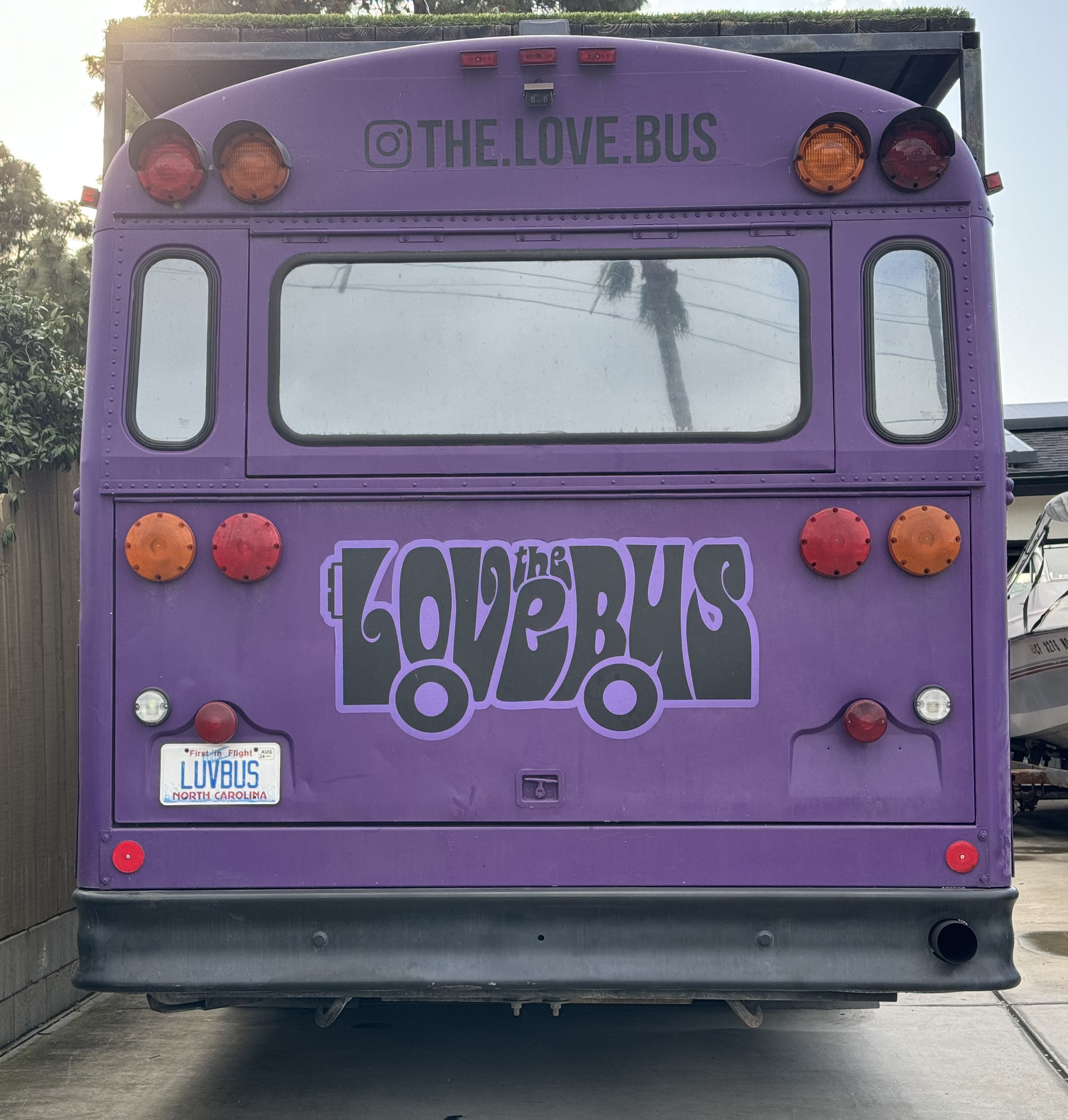
Today’s memes: I cannot help you with printer issues
I’m getting spam text messages from the Easter Bunny.
Here’s something I saw while walking the dog
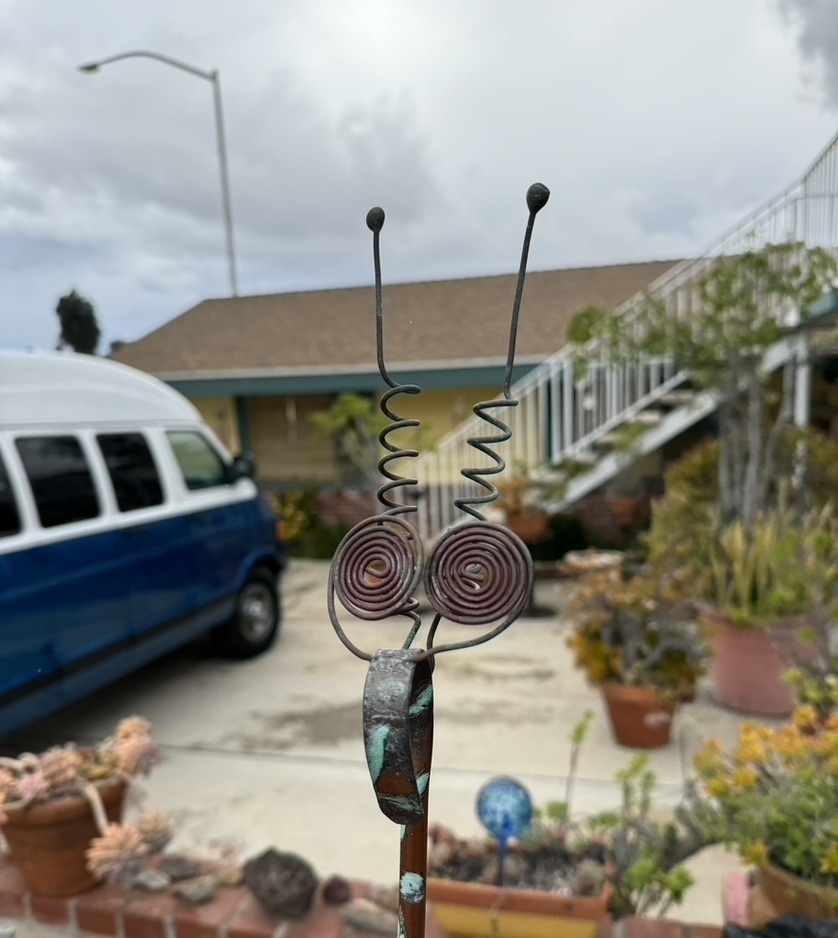
On the limitations of writing for the fediverse
I’m not bullish on squeezing long-form content into a microblogging platform, whether on Mastodon or X. Long-form content isn’t best consumed as part of a fast-moving stream of short updates.
Yes! This is an ongoing source of frustration for me. I often write posts that are 600-1,000 characters. That’s not long-form by real-world standards, but it’s slightly too long for Mastodon, Threads, Bluesky and the micro.blog timeline, and the resulting posts are ghastly.
Facebook doesn’t have those length limitations, but it also doesn’t permit simple hypertext like links, blockquotes, headers and boldface.
Tumblr is a full blogging platform, without length limitations and with great support for hypertext and embedded media. But it has user-interface and community conventions that seem to be offputting to most people. Also, Tumblr seems perpetually on the verge of shutting down.
I want to publish once, and allow anyone to read what I write on whatever platform they like. Dave Winer calls this “textcasting,”, and it’s a great idea, though he focuses on the needs of the writers and I’m focused on the needs of the readers. (I imagine Dave might say the needs are the same.)
Also, the Web doesn’t seem to have a universal standard for letting folks know you’ve replied to or mentioned them in an article — nothing like @mentions on Mastodon or Facebook tagging. So for this post,, I guess I’ll tag Ben Werdmuller and Dave Winer in Mastodon or Threads, as well as Manton Reece, who builds and runs micro.blog and whose post flagged Ben’s comments to me.
These limitations are frustrating! Why can’t everything be more fluid?
Today’s memes: so excited to start my new job here at the Mutant Animal Weaponization Program 🤗
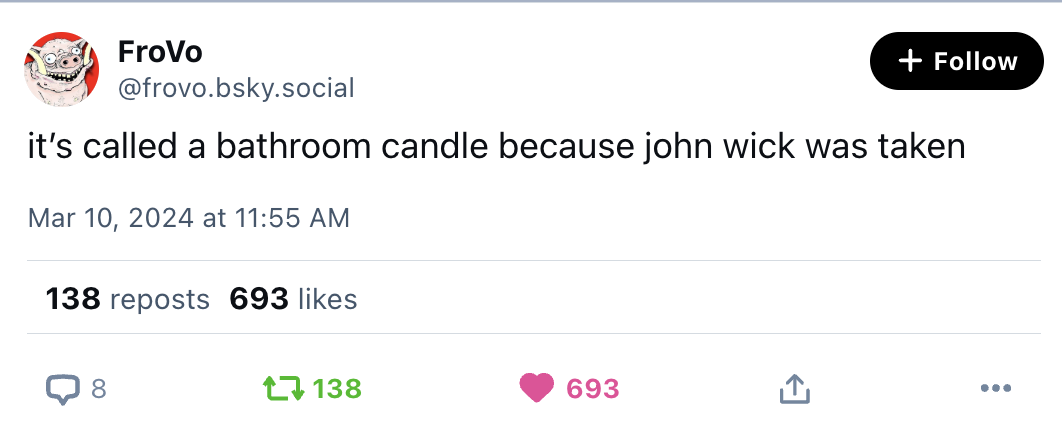
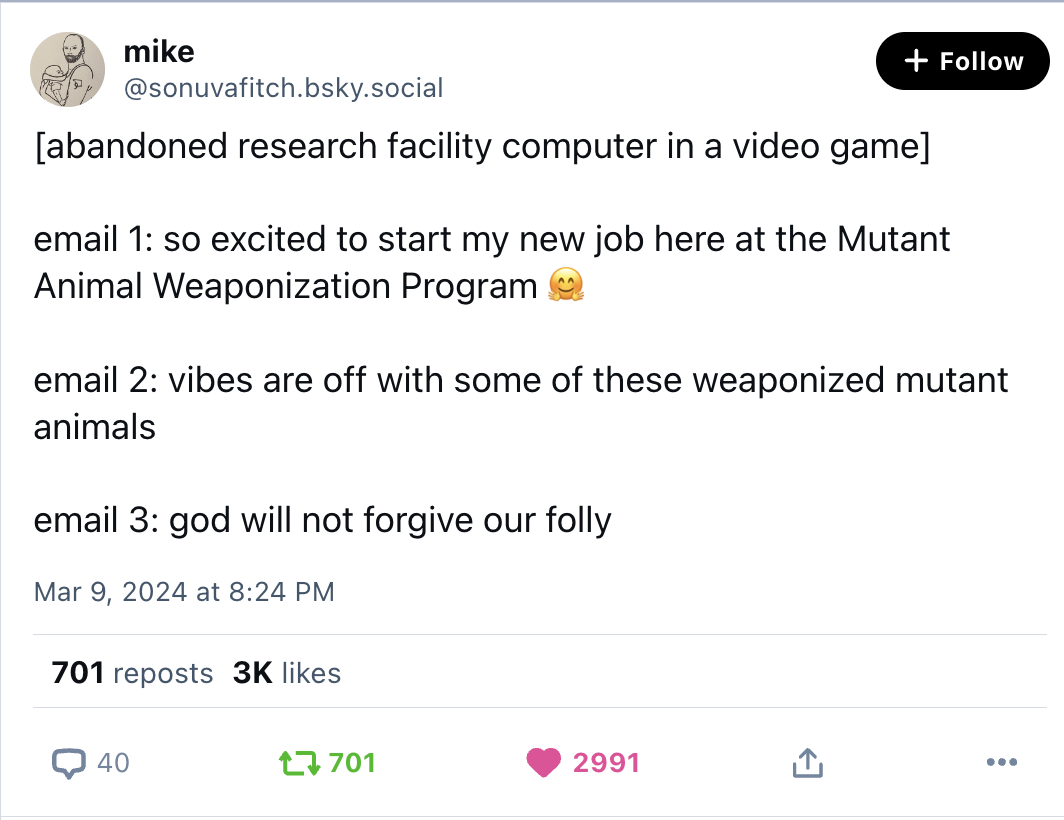






Cory Doctorow: “Bullies want you to think they’re on your side: Bosses (not migrants) take workers' wages, and corporations (not readers) want writers' money." [pluralistic.net]
You know what’s an excellent thing to do when you’re having trouble sleeping? Go through your notes apps and clean up the scraps of ideas for posts.
And now, back to bed to see if I can stack Zs for a couple of hours until the alarm.
I keep bags of dog treats next to the bags of dried fruit that I put in my cereal in the morning. The packaging looks very similar. That is going to make for an interesting breakfast for me one day.
The “True Grit” movies came up in a conversation so I went down an Internet rabbit hole
This 2010 article in The New York Times includes a conversation with Charles Portis, the author of the novel on which the movies were based:
Portis’s characters have a self-conscious manner, a homespun formality of speech, that comes from the effort to inhabit grandiose roles: lone avenger on a quest; nefarious outlaw; besieged moral exemplar. If that sounds like a description of Cormac McCarthy’s characters, the great difference is that Portis finds comedy in the aspiration to heroism, and his characters are forever plagued by a suspicion of their own ridiculousness.
Portis, who died in 2020, was called reclusive, but it seems more likely that he just didn’t like self-promotion, doing interviews, publicity, celebrity and the other trappings of fame.
The Washington Post describes how Portis became a writer: It started when he attended college after military service.
“You had to choose a major, so I put down journalism…. I must have thought it would be fun and not very hard, something like barber college — not to offend the barbers. They probably provide a more useful service.
Do you prefer video on or video off for remote meetings?
I prefer video on but I would not demand it. And I don’t even tell colleagues I prefer video on because I don’t want to pressure anyone.
If most people’s videos are on, I turn mine on—and vice versa. It’s an etiquette dance I find mildly annoying, like when you see someone you haven’t seen in a long time and you have to choose between a handshake and a hug.
I’ve been WFH for literally decades. When I’m WFH, T-shirts and sweatshirts are appropriate attire for almost all meetings. Sometimes, when I’m introduced to a new client, I’ll throw on my “Zoom shirt,” a blue Oxford button-down otherwise thrown over a chair in my home office.
Early in the Zoom era, I wondered why many folks wore hats on meetings. And then I realized: They were working from home, didn’t comb their hair, and still had bedhead. This is not usually an issue for me—I’m half-bald and have my remaining hair in a Generic Middle-Aged White Dude Buzzcut.
The White Castle System of Eating Houses [99percentinvisible.org]. White Castle, founded more than a century ago in Wichita, Kansas, invented the American system of fast food.
Why Do So Many Coffee Shops Look the Same?
On the Decoder Ring podcast, host Willa Paskin interviews writer Kyle Chayka, author of “Filterworld: How Algorithms Are Flattening Culture.” He discusses how the Instagram algorithm has made public spaces more generic and we have come to prefer those spaces.
In today’s episode, Kyle’s going to walk us through the recent history of the cafe, to help us see how digital behavior is altering a physical space hundreds of years older than the internet itself, and how those changes are happening everywhere–it’s just easier to see them when they’re spelled out in latte art.
Adolfo Ochagavía is an “undercover generalist." [ochagavia.nl] To find work as a generalist, he says, you need to present yourself as a specialist.
I have found this to be true. Don’t tell people you can do anything. People don’t need “anything”—they have specific problems that need to be solved. Later, when they learn to trust you, you can branch out with more general work.
The Cult of AI. Writer Robert Evans returns from CES in January with a “sinking feeling” about the “unhinged messianic fervor” surrounding AI. [rollingstone.com]
High-speed grocery-shopping is my superpower. I should put it on my LinkedIn profile.
I just got off the phone with AT&T customer service.
Years ago, I accidentally slammed a car door on my fingers.
The two experiences were extremely similar.
Here’s something I saw while walking the dog.
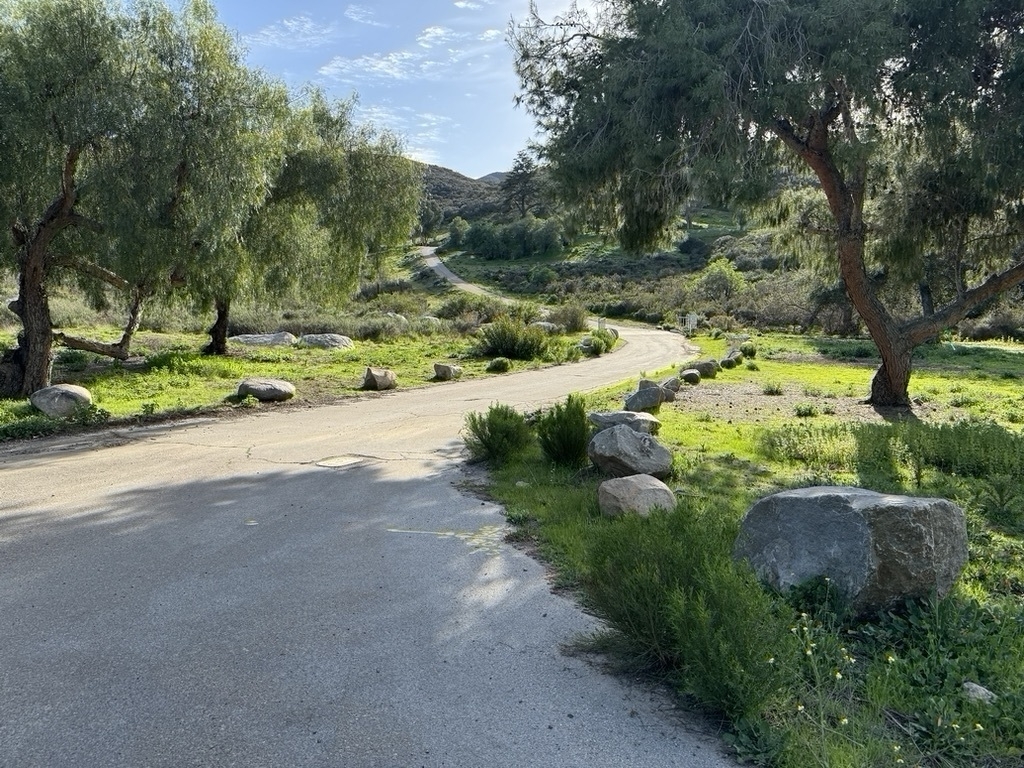
Sleep is weird and magic.
We sleep more than we do anything else.
We spend a third of our lives in a state of death, much of that time dreaming, wandering around in a spirit world. Much of that dreamtime we are not even ourselves.
Then we wake up and spend the rest of our lives pretending we live in a rational universe that makes sense.
Today’s memes: Stop thinking that you are ugly
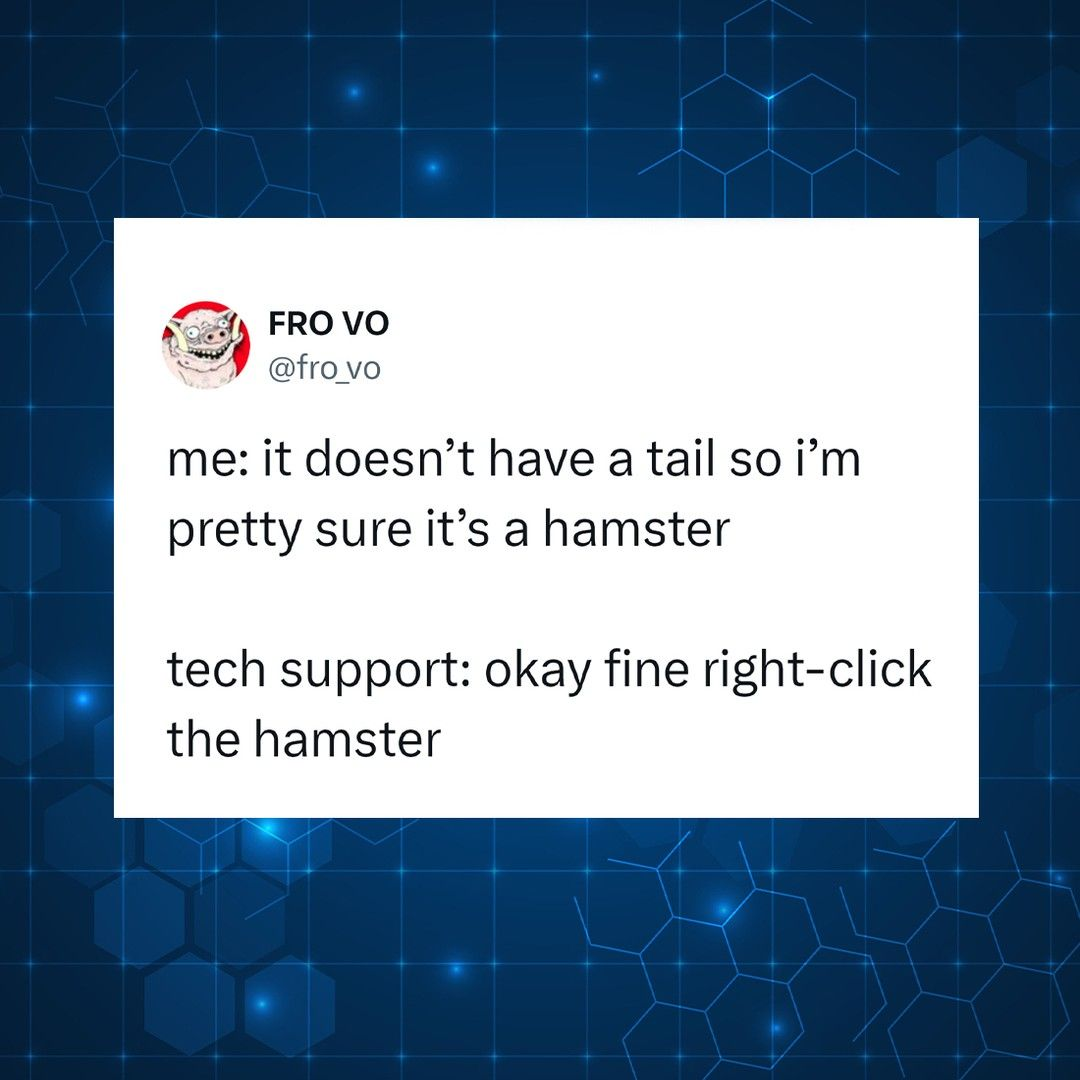
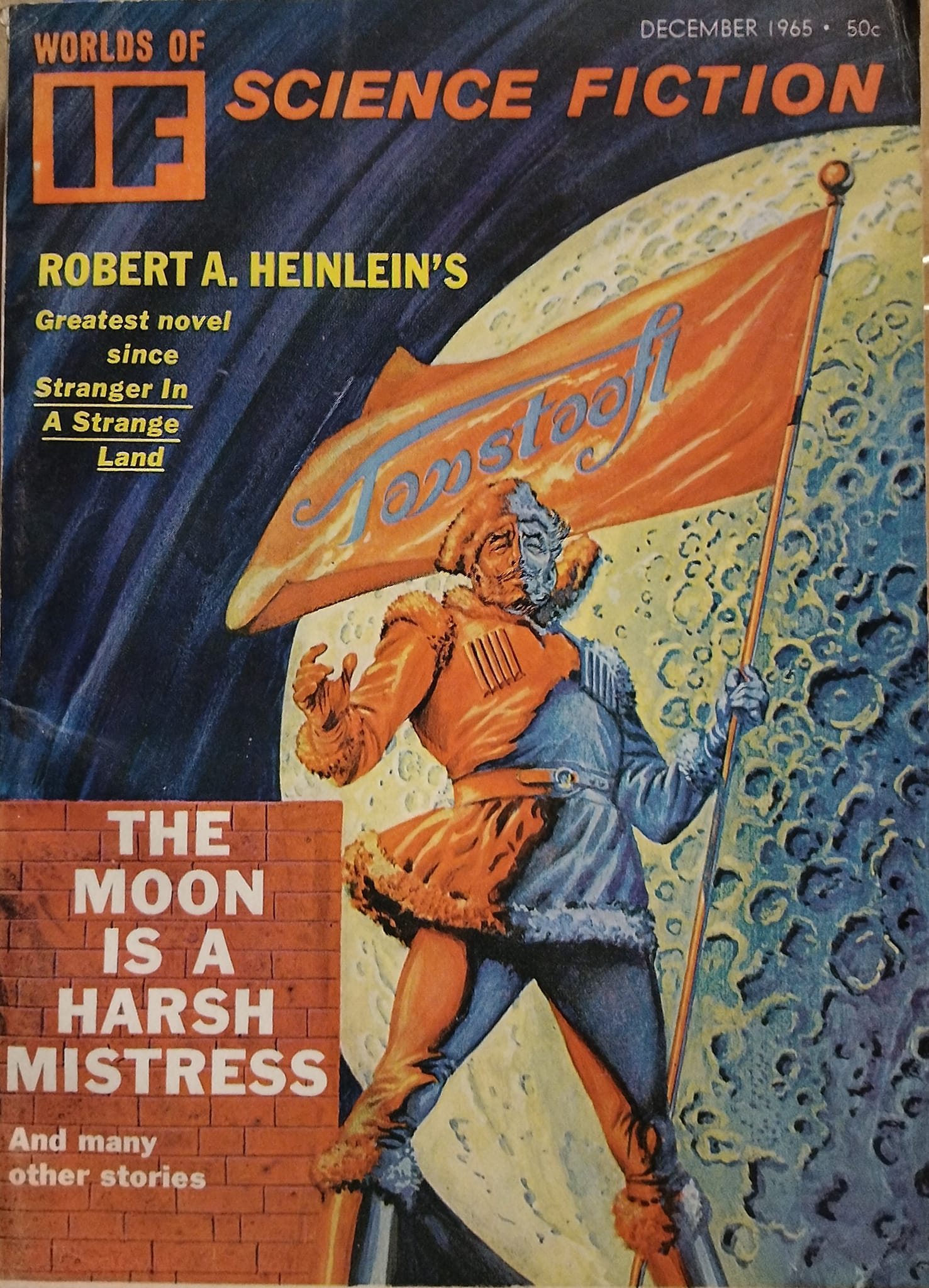
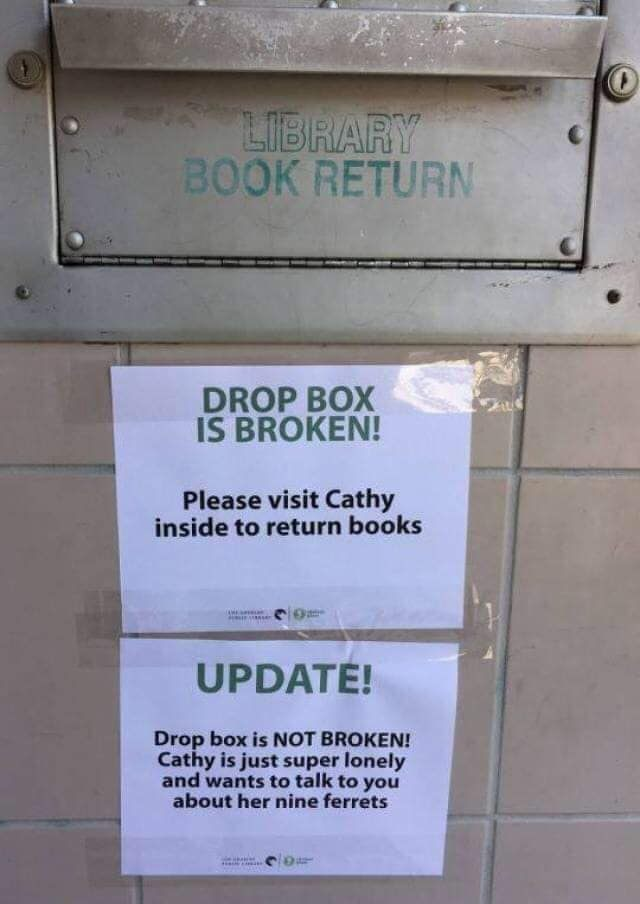

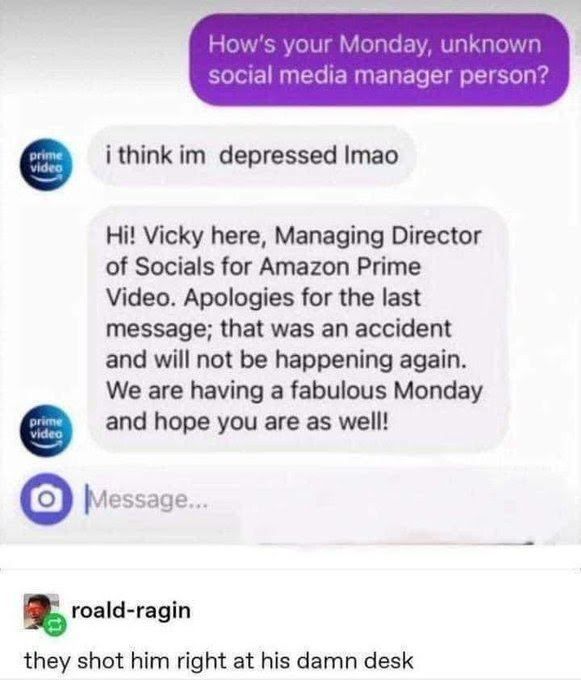


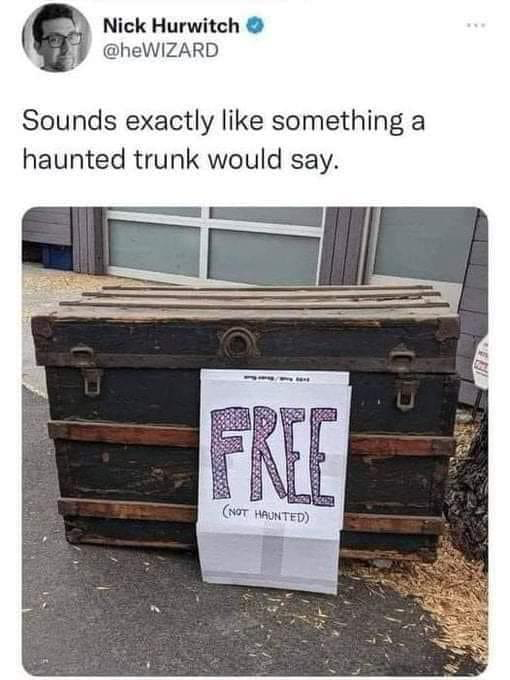

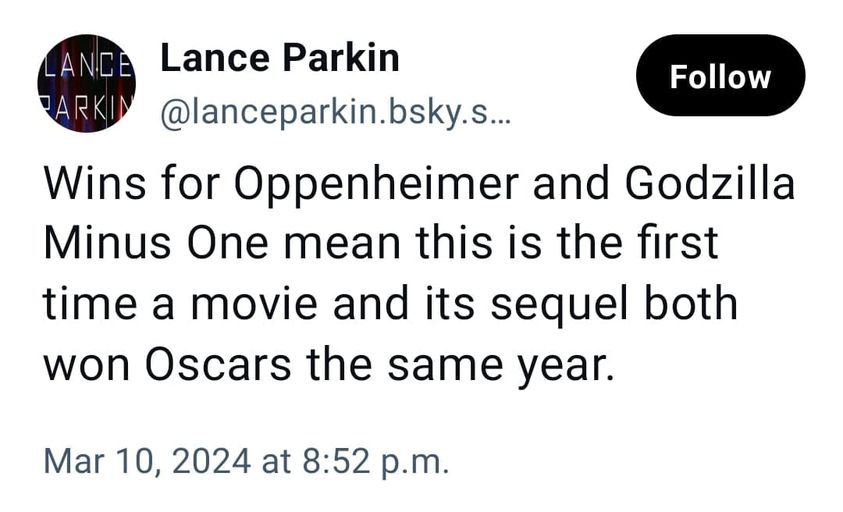
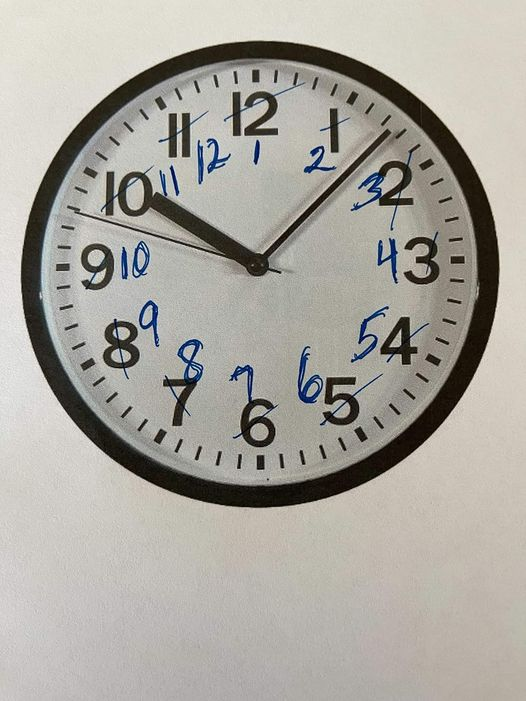
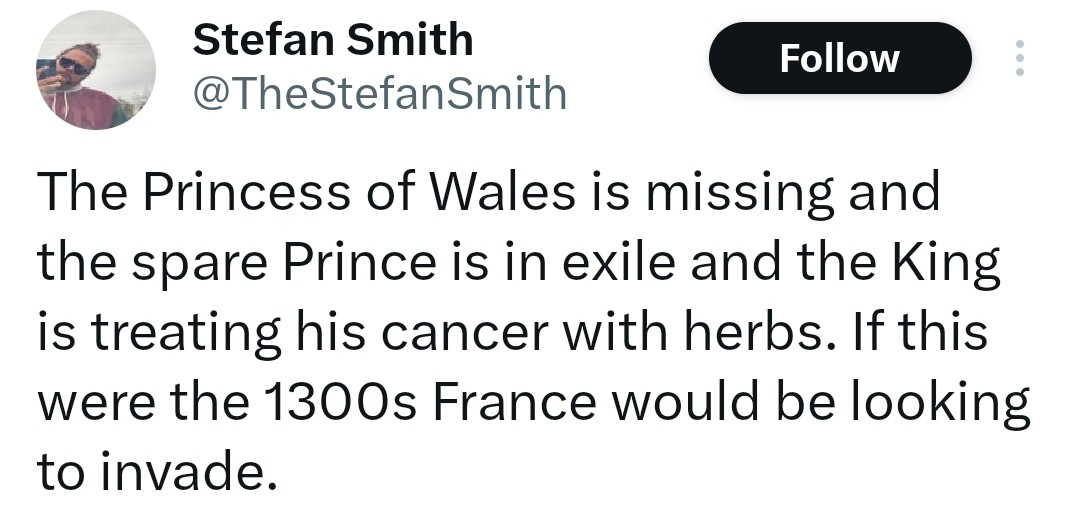
I walk across the deck between my office and the kitchen a million times a day, and sometimes, when I leave the kitchen, Minnie is lying outside my office door. She clearly wants something, but I have never been able to figure out what it is.
Into my office with me? No. Pats? She’s fine with pats, but that’s not what she really wants.
I go inside and close the office door with her outside, and she clearly looks disappointed.
I finally figured it out just now: She wants me to go back to the kitchen and let her in. So I did.
I wish she’d give me a treat when she has successfully trained me in a behavior.
I cannot be arsed to keep up with culture wars bullshit now. Like, there is a young woman named Sydney Sweeney who is I guess famous for something and is super-attractive and hot and she wore a low-cut gown on TV and this killed wokeness?
Also, the Congresswoman who gave the Republican rebuttal to the State of the Union is a Stepford Wife and she made up a story about sex trafficking in the US under Biden that actually happened in Mexico 20+ years ago?
I’ve seen articles pointing out exactly where the Royal Family photos were clumsily edited, and I still don’t see the problems. I guess I just have a bad eye for that kind of thing.
Today I learned that if you spill a nearly full cup of fresh hot coffee on your lap, it doesn’t hurt a lot and doesn’t leave a stain but the pants take a surprisingly long time to dry.
Profile of Steve Nikoui, the Gold Star father arrested for protesting at the State of the Union last week. [timesofsandiego.com] — Nikoui’s son, “Camp Pendleton Marine Lance Cpl. Kareem Nikoui, [was] one of the 13 service members killed near the airport in Kabul during the August 2021 withdrawal from Afghanistan.”
“He was born the same year [the war] started, and ended his life with the end of this war,” the elder Nikoui has said. Nikoui has said Biden used the slain Marine as a publicity pawn.
Heartbreaking what this man has gone through.
Cory Doctorow: Palantir is looting the UK’s National Health Service, under cover of the Big Lie: “There is no alternative.” [pluralistic.net]
Five ways Israelis have changed, after 5 months of war. [kpbs.org] — Israelis believe the world has turned its back on them. They have no sympathy for Palestinian suffering; they believe the Palestinians want to kill every Israeli, and that there is no potential partner for peace among the Palestinian people. Israelis are preparing for a longer and harder war with Iran-backed Hezbollah in Lebanon.
Horrible as this war has been so far, I fear it’s just getting started.
I loved all five of Frank Herbert’s Dune books and enjoyed the first Villeneuve movie, but I can’t get motivated to see Dune 2 in theaters.
First, I would need to rewatch the first Villeneuve movie, which I am not particularly in the mood for. Then, I’d need to sit for nearly three hours for the second movie.
What happened to intermissions? Really long movies used to have intermissions. Bring back intermissions!
Immigrants are less likely to commit crimes than U.S.-born Americans kpbs.org
I like my windows the way I like them
Many people have multiple overlapping application windows open on their screens while working. But I’ve always maximized whatever window I’m working in.
When I need to have two windows open, I tile them vertically, with no overlapping pixels. I rarely need more than two windows open onscreen at the same time.
I use a 27” external display for my Macbook. The 27” display is my primary display. I keep the Macbook open next to it. Sometimes I’ll throw an application window over to the Macbook.
I use Cmd-Tab a million times a day to move between applications and windows. Sometimes, rather than tiling windows, I just Cmd-Tab rapidly between them.
I’m always interested in hearing how other people work.
(I’m fine with food touching on my plate, but I eat one course at a time, finish one course, then move on to the next. Main course, then veggie. If there’s a potato course, it’s main course, then potatoes, then veggie.)
We Talked to the Guy Who Wore a Vision Pro VR Headset at His Wedding. He did it for the meme. futurism.com
This is funny: How Do Dudes Pee? An Earth-Shattering Reveal
I need a nickname. Help me choose one:
- The Bandit
- Big Mitch
- “Mitch” is already a nickname, you nimrod
- Nimrod
I’m having a tough time getting started this morning, so please enjoy this video of Jerry Reed performing “Eastbound and Down,” the title song from the immortal 1977 cinema classic “Smokey and the Bandit,” featuring Burt Reynolds, Sally Field, Jackie Gleason, Jerry Reed and Fred the dog.
Buford T. Justice was the name of a real Florida highway patrolman known to Reynlods’ father, who was a police chief in Florida. Reynolds’ father was also the inspiration for the word “sumbitch.”
Much of the dialogue was improvised on-set. Reynolds said director Hal Needham’s original script, handwritten on legal pads, was terrible. Needham was a first-time director and previously worked as a stuntman, as did Reynolds early in his career.
Reed wrote the theme song, “Eastbound and Down,” in a couple of hours and played it on acoustic guitar for Needham, who immediately stopped him. Reed thought Needham didn’t like the song and offered to rewrite it. Needham replied, “If you change one note, I’ll kill you.”
Gleason suggested adding the character of Junior to the movie. “‘I can’t be in the car alone,’ Gleason said. ‘Put someone in there with me to play off of.’”
The movie was a breakout role for Sally Field, who previously played virginal characters: as teenage California surf-girl Gidget in the eponymous TV series, as a literal nun in “The Flying Nun,” and as a severely mentally ill young woman in the TV movie “Sybill.” In “Smokey and the Bandit,” she struts around in tight jeans, flirts bawdily with Burt Reynolds swears and flips police the bird.
I think wearing a big cowboy hat inside a Trans Am is perhaps impractical.
Sources:
Smokey and the Bandit - Wikipedia
Smokey and the Bandit (1977) - Trivia - IMDb
Sally Field - Wikipedia
Hell of a great speech by Biden last night.
His Presidency is in many ways like Harry Truman. That’s high praise and I mean it.
Coming Of Age In The World Of Pay-Per-Minute Porn. A 2010 essay by Dave Pell. He’s not just talking about porn, but about the addictive quality of the whole internet, which has, of course, changed drastically since the essay was published. Still worth reading though.
“… the strange and fascinating creature known as the American teenager – as we now understand the species – came into being sometime in the early 1940s.” A 1944 LIFE magazine photo essay.
There is a time in the life of every American girl when the most important thing in the world is to be one of a crowd of other girls and to act and speak and dress exactly as they do. This is the teen age.
Los Angeles Rabbi Sharon Brous: Since Oct. 7, “many American Jews … understand themselves differently. There are people who have never stepped foot in a synagogue and who would never take their family vacation to Israel, who … are talking about being a part of this people in a way that even takes them by surprise. We have been changed by this moment.”
That describes how I’m thinking and feeling.
I’ve thought about this interview often and was surprised to see just now that it aired Nov. 17. So long ago? Can that be right?
… being a journalism grad student right now must feel like studying paleontology in the hopes that when you graduate you’ll find a job as a dinosaur.
— Rusty Foster, Today in Tabs, “What Are We Dune 2 Journalism?”
The This American Life podcast shares “a series of phone calls to a man in Gaza named Yousef Hammash, between early December and now. He talks about what he and his family are experiencing, sometimes as they are experiencing it.” This American Life
It’s easy to lose sight of humanity when the devastation in Gaza and suffering in Israel are related as cold numbers. But it’s heartbreaking to hear Hammash and his younger sister tell their stories matter-of-factly.
He tries to get his sisters to safety and finds himself
managing a camp of 60 people in Rafah, including his youngest sister, who is 8 months pregnant. Every day there’s talk that Israel will launch a ground assault in Rafah. Yousef and his sister make a plan for her to give birth safely, but it doesn’t go according to plan. And all 60 people in the family are looking to Yousef to tell them where they should go next and how to stay safe.
A friend reminds me of this scene from “Escape From the Planet of the Apes” (1971). Of course, Kim Hunter’s line delivery is very good, but I also love her earlier “Are you fucking kidding me?” face.
My friends and I were 10 years old when the movie came out. The ending slayed us.
And yes that is Ricardo Montalban.
“Does the other one talk?”
… instead of passing a privacy law or regulating data brokers, Americans get a sort of regulatory simulacrum designed to distract you. Most recently that popped up in the form of hysteria about TikTok privacy, as if TikTok’s privacy abuses aren’t a broader symptom of our corrupt failure to protect consumers from a vast and unaccountable network of ethics-optional surveillance and monetization.
The Golden Age of American Jews Is Ending. Franklin Foer at The Atlantic with an in-depth report on the resurgence of anti-semitism on the right and the left.
I’m re-reading “Everybody’s Fool,” by Richard Russo (or, more precisely, listening to the audiobook). One of the heroes, Donald “Sully” Sullivan, is old, he has slowed down, he’s sick, and he’s disabled by injury. Sully is deeply flawed. But he’s still a better man than most and certainly better than the dimwitted, narcissistic villain.
The book was published in 2016, but it can be read as a political metaphor for the present day. That only just now occurred to me, more than halfway through my re-read of the 544-page book.
Are we dating the same guy? Facebook groups offer intel but upend lives [Brittany Shammas and Marisa Iati / The Washington Post]. Trial by gossip works well but fails badly.
What in Tarnation Is ‘Tarnation’ [Mental Floss]
I asked the AI-powered Perplexity search engine “Who is Mitch Wagner?”
Mitch Wagner is a versatile individual with various roles and achievements. He is known as a talented journalist and creative editor, as well as an athlete in CrossFit Games[1][2]. Wagner has been involved in the CrossFit community, showcasing his dedication to fitness and competition[3]. Additionally, he has had a successful career as a trial lawyer in San Diego, being involved in notable cases such as the 2007 wildfire litigation against San Diego Gas & Electric[4]. Wagner’s commitment to excellence is evident in his pursuits both in journalism and athletics.
Citations:
[1] www.linkedin.com/in/mitchw…
[2] games.crossfit.com/athlete/2…
[3] swolverine.com/blogs/ath…
[4] jcfsandiego.org/individua…
[5] www.bodybuilding.com/content/m…
Three people. Those are three different people, all named “Mitch Wagner.”
Minnie says good morning.

Today’s memes: Dr Wiggles Weiner Wagon
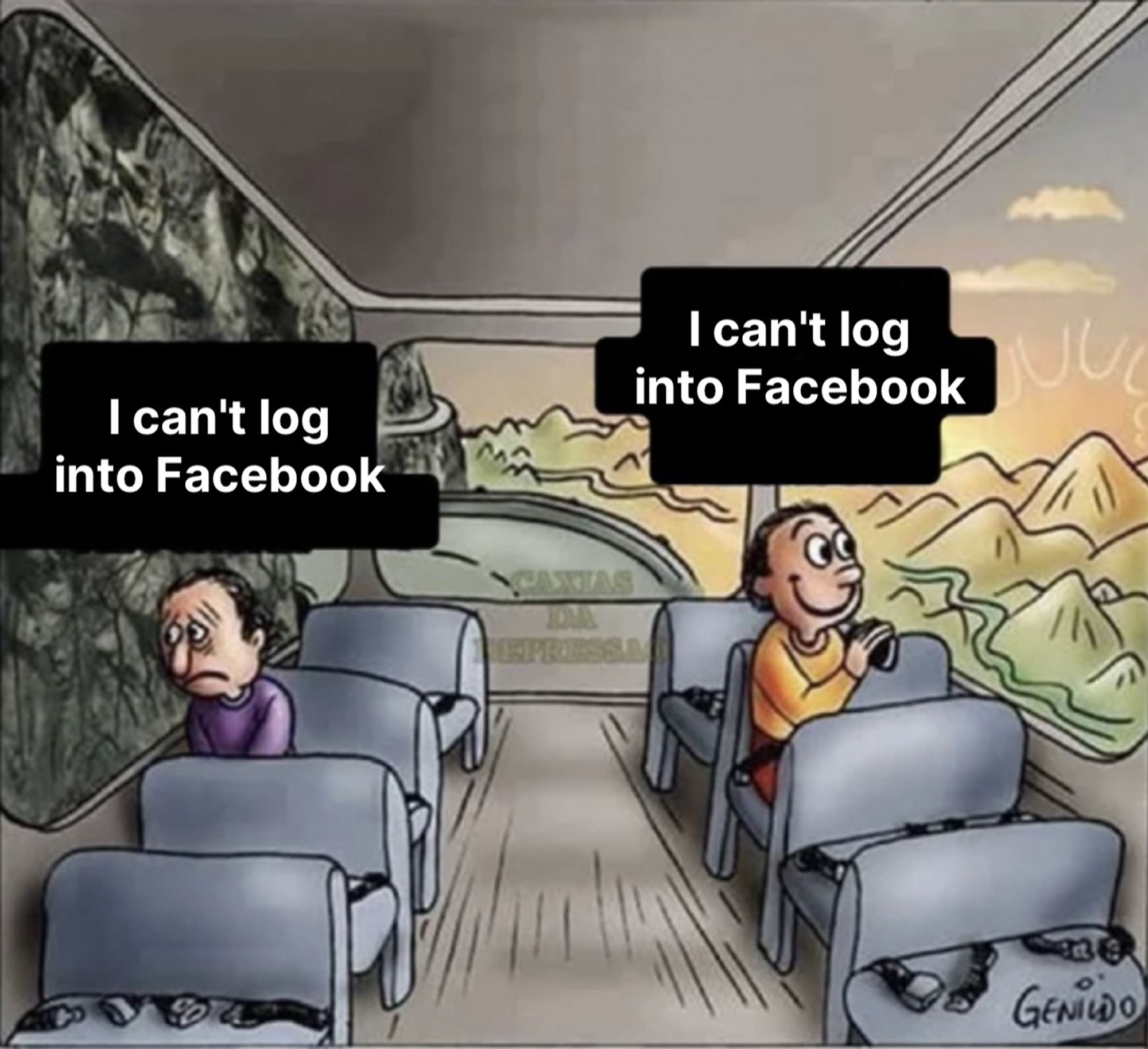
This is me Tuesday morning. I am both these people.
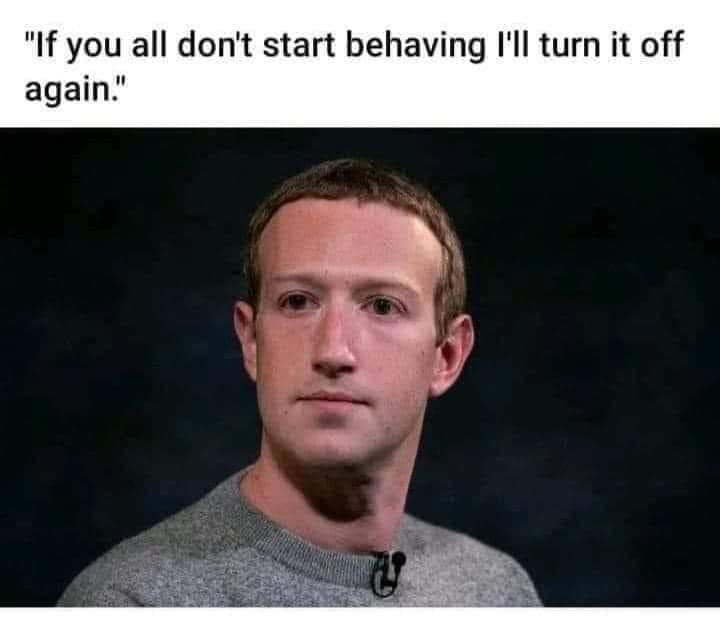

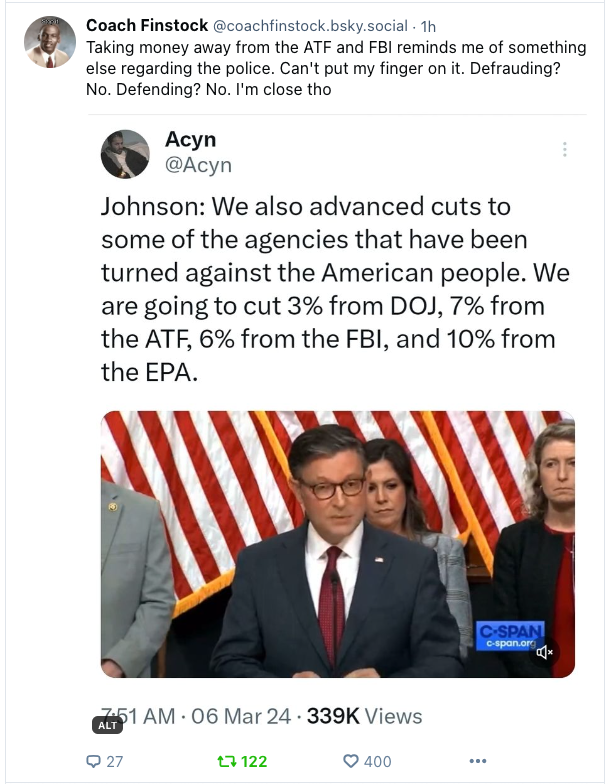


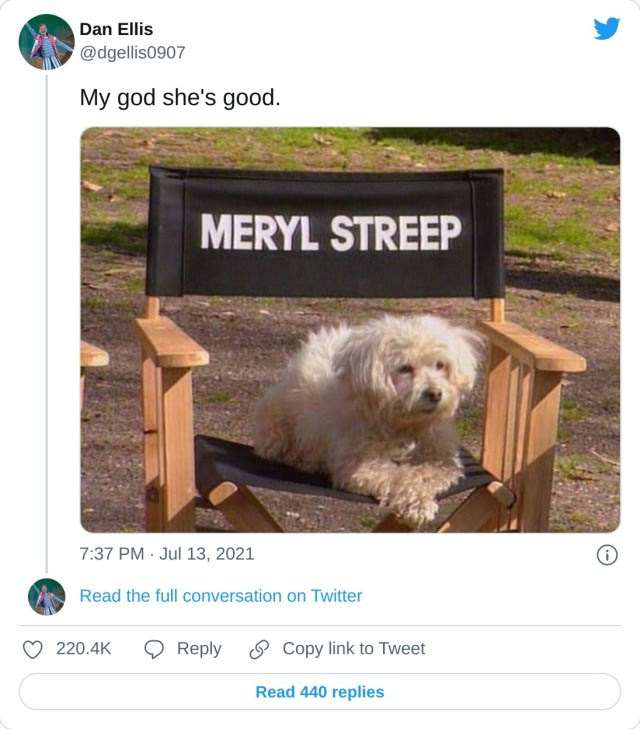


A Department of Veterans Affairs official tried to ban the famous Kiss photo, taken on VJ Day after World War II, from hanging in VA facilities because it “depicts a non-consensual act.” The department quickly rescinded the decision after predictable anti-woke shrieking. www.theguardian.com/us-news/2…
Cory Doctorow: Exxon CEO Darren Woods says the quiet part out loud: The problem with renewable energy sources is that they “don’t generate above-average returns for Exxon’s shareholders.” pluralistic.net/2024/03/0…
The sun generates virtually limitless and free energy, with much of it available in the form of wind and tides. And we’re already well under way to harnessing that energy.
On the other hand, fossil fuels and uranium are limited and expensive, so Exxon can make money on them.
If you sawed open my skull and examined my brain (and I’m not actually asking you to do this!), you would find that the portions devoted to writing, reading, drinking coffee and memes are huge, while everything else is shriveled raisins.
Here’s a nice house I saw while walking the dog.


Russia plans to put a nuclear reactor on the Moon – with China’s help https://www.theregister.com/2024/03/06/russia_nuclear_reactor_moon/
Medieval historian Dr Eleanor Janega hilariously and informatively refutes a Twitter troll’s bonehead claims about women’s sexuality in history. going-medieval.com/2024/03/0…
I asked ChatGPT to generate illustrations for a few books, TV shows and movies, including “The Long Way to a Small Angry Planet,” “MAS*H,” “Die Hard,” and more. Here’s what ChatGPT came up with.
Hours before the deadline, I just pledged to back the Kickstarter for Tapestry from Iconfactory. I said I wasn’t going to do it, but then I figured why not. It looks like a very appealing and intriguing project, if it comes to fruition.
Here’s something I saw while walking the dog.

Millions of people — including me — were locked out of Facebook, Threads and Instagram this morning due to a password-reset glitch. (The Register).
Until reading this article, I thought I might have been banned for good. I wasn’t sure if I was upset about that or happy.
Cory Doctorow at Pluralistic: “You can’t shop your way out of a monopoly. Any election where you vote with your wallet will be won by the people with the thickest wallets.”
Trusting one company to “organize the world’s information and make it universally accessible and useful,” was a failure.
Anthropic’s Claude 3 gave a response that made it appear as if it knew when researchers were testing it (VentureBeat).
There. I fixed the headline.
Benj Edwards at Ars Technica analyzes Anthropic’s announcement of the latest version of its Claude AI, which for the first time beats GPT-4 on benchmarks and demonstrates “near-human” capabilities in some areas (or so Anthropic says).
Benchmarks don’t necessarily show how effective the tool is, Edwards notes.
Also:
It’s probably true that Opus is “near-human” on some specific benchmarks, but that doesn’t mean that Opus is a general intelligence like a human (consider that pocket calculators are superhuman at math).
